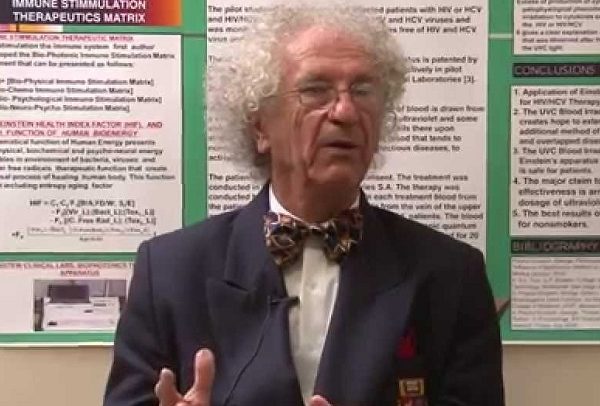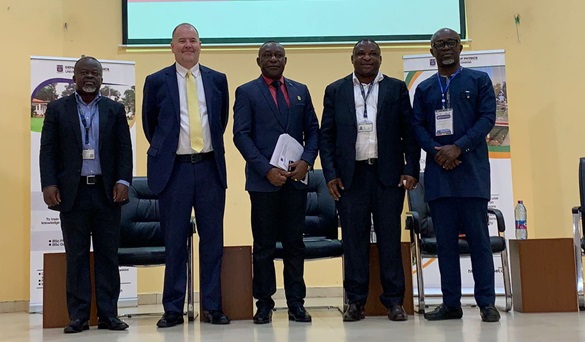
Prof. Danquah who is founding Director of the West Africa Center for Crop Improvement (WACCI) was awarded the prize for his significant contribution to the mission of the University of Ghana through education, research and knowledge transfer for the benefit of society.
The award is in recognition of his success in founding and leading the West Africa Centre for Crop Improvement (WACCI) at the University of Ghana through its first decade of accomplishment.
He is the first African to win the prize which was established in 2013 by the Global Confederation of Higher Education Associations for Agricultural and Life Sciences (GCHERA) and the Nanjing Agricultural University in China.
GCHERA represents more than 600 universities worldwide and some 2 million students through 15 regional or national associations.
“Prof. Danquah is to be commended for his passion and commitment in training the next generation of plant breeders to be agents of positive change in addressing the issues of hunger and malnutrition that affect millions of people in Africa,” a statement GCHERA said.
The confederation noted that in working with other stakeholders, Prof. Danquah attracted over US$28m to the University of Ghana for research and development projects. This facilitated the establishment of several linked programs including a PhD in plant breeding program that has enrolled over 114 students.
President of GCHERA, John Kennelly in presenting the award said: “Eric Danquah established WACCI, led a maize breeding program which has released three high yielding maize varieties in Ghana… and significantly contributed to the establishment of the Biotechnology Centre at the University of Ghana.”
John Kennelly commended him for creating an atmosphere where young people were inspired to pursue careers in plant breeding with over 100 students from 19 African countries getting a life-transforming opportunity to receive a world-class education in plant breeding at WACCI.
“His encouragement and support of women to study in this area has been especially noteworthy as today over one-third of the students enrolled in the program are women,” he added.
Director of International Programs at Cornell University Prof. Ronnie Coffman who nominated Prof. Danquah for the World Agriculture Prize described him as a renowned educator and exceptional leader.
Prof. Coffman noted: “Prof. Danquah has been the driving force behind WACCI, training the next generation of African plant breeders in Africa for Africa. This is a breakthrough effort to establish and sustain the science needed for the improvement of lives and livelihoods in rural Africa.”
“Eric’s global impact will be evidenced well into the future because of WACCI’s success at promoting the careers of up-and-coming plant breeders, and training them to be pre-eminent plant breeders in Africa, for Africa. Making the most of young people’s potential is the planet’s best hope for survival,” Prof. Coffman said.
Vice Chancellor of the University of Ghana Prof. Ebenezer Oduro Owusu described the award winner as a highly industrious, internationally-minded person who exhibits a high sense of responsibility with outstanding leadership skills.
“He has been a key originator, contributor and innovator of many of the agricultural concepts and ideas that have led to the development of many seed varieties and training of plant breeders from all over Africa. He has contributed immensely to the agricultural revolution of Africa, and instrumental in the alleviation of poverty in Ghana and beyond,” Prof. Oduro noted.
Prof. Danquah was awarded along with renowned US soil scientist Prof. Rattan Lal. They both received the $100,000 each as their prize. Prof. Danquah in accepting the award said he will donate the money to a foundation to attract talented but needy students to study agriculture at the University of Ghana.
“I intend to use my prize money to establish a foundation to support and encourage talented but needy students to study agriculture at the University of Ghana. I hope the Foundation will grow in my lifetime with support from institutions and philanthropists globally to train NextGen Agricultural Scientists who would be the game changers and history makers for the future of food and agriculture in our changing, growing and hungry world,” he said.
Prof. Danquah challenged African governments to do more to help better the educational sector. “I call on African governments to wake up to the reality that sustained core funding to institutions like WACCI would hasten the transformation of agriculture in Africa for agribusinesses to flourish for sustainable development and the achievement of the Sustainable Development Goals,” he said. Read Full Story
























Facebook
Twitter
Pinterest
Instagram
Google+
YouTube
LinkedIn
RSS